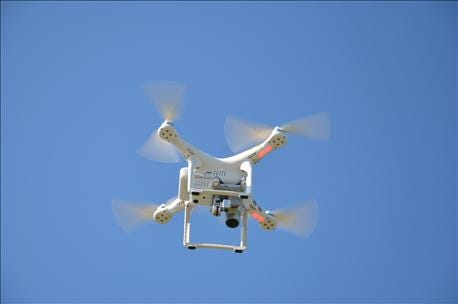
The Federal Aviation Administration isn't the only group aware that unmanned aerial vehicles, more commonly known as drones, are growing steadily in popularity. The FAA is finalizing rules that should allow farmers and agronomists or others who work with farmers to use UAV’s to scout fields for commercial purposes.
Meanwhile, before the legislature adjourned, it passed House Bill 1246, which addresses various matters. One of them is whether or not drones can be used by hunters scouting for deer or other wildlife. The legislation as passed prohibits the use of UAV’s to aid in the hunting and killing of wildlife either immediately before or during the hunting season.

NOT FOR HUNTING: The legislature banned the use of UAVs for hunting purposes beginning 14 days prior to the opening of a wildlife season to the final expiration date of the season.
Indiana Farm Bureau included a synopsis of this legislation in its’ final report to members on the legislative session. While IFB supported the bill, lobbyists for IFB wanted language added that would protect farmers’ rights to use UAV for legitimate purposes essential to their operation. However, that language doesn’t appear in the final bill.
What does appear are a random bunch of regulations tossed together like a salad in one measure. If you want an example of how amendments can be tacked onto a bill that acts as a carrier for various pieces of legislation, this is it. Here are 5 widely varying changes in the law which was included in the final version of this bill approved by the legislature.
1. Changes who makes forest classifications
Until now the county auditor made determinations on classifying land as native forest, forest plantations or wildlands. This law changes that authority to the county assessor instead.
2. Makes violation of certain boating laws a class C infraction
The legislation also amends the list of law enforcement officers who are to be contacted in case of a boating accident.
3. Trap coyotes and birds around airports
The manager of a public use airport, or his or her designee, can trap both coyote and migratory birds without a license if they can demonstrate that the animals are interfering with use of the airport.
4. Ginseng dealers beware!
It is now a class B misdemeanor to purchase or sell ginseng for resale or exportation without a license.
5. More boat rules
If you operate certain boats without an aft light, it is now a class C infraction.
All this brings us to one conclusion. How are you supposed to know everything that is in a law unless you read every page? Thus particular list could have had 15 items instead of five, and the remaining 10 would have little to do with the five listed here.
About the Author(s)
You May Also Like




